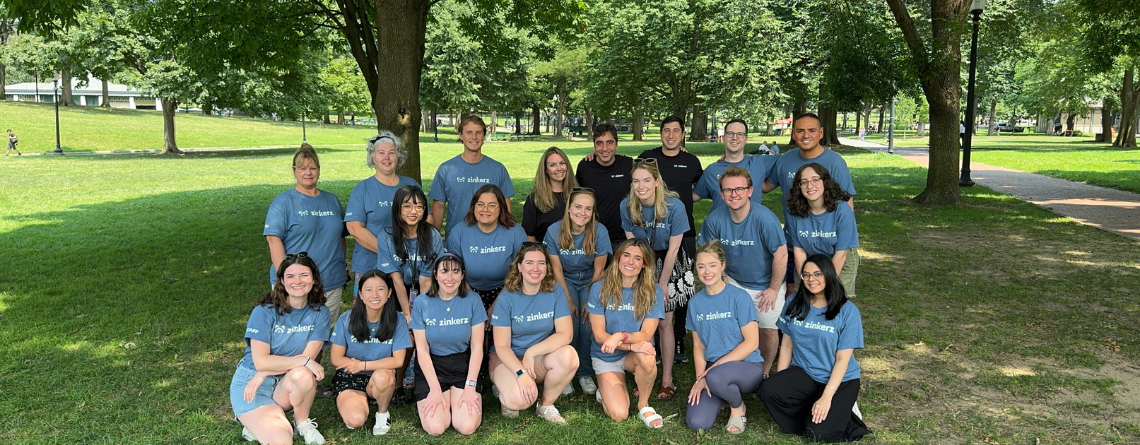Extracurricular activities are not just for filling up spare time; they are a vital part of professional development for college students. Engaging in extracurricular activities offers opportunities to gain skills, experience, and networks that are invaluable in the professional world. Here are some of the best extracurricular activities that college students can pursue to gain meaningful professional experience.
1. Internships
Internships are perhaps the most direct route to gaining professional experience while still in college. They provide hands-on experience in a student’s field of study, helping them understand the practical applications of their coursework. Internships can be found through university career centers, online job portals, and networking events.
Benefits:
- Real-world experience in a specific industry.
- Opportunities to build professional networks.
- Potential for a job offer post-graduation.
Tips:
- Look for internships that align with your career goals.
- Treat every task, no matter how small, with professionalism.
- Seek feedback and use it to improve your skills.
2. Student Organizations and Clubs
Joining student organizations and clubs related to one’s field of interest is a great way to gain leadership skills, collaborate on projects, and meet like-minded individuals. For instance, engineering students can join the American Society of Mechanical Engineers (ASME) or other technical clubs, while business students might find value in participating in the Business Club.
Benefits:
- Leadership and teamwork experience.
- Networking opportunities with peers and professionals.
- Chances to work on relevant projects and competitions.
Tips:
- Take on leadership roles to maximize learning.
- Participate actively in events and meetings.
- Network with alumni and professionals who are part of the organization.
3. Volunteering
Volunteering is a powerful way to gain experience while giving back to the community. Nonprofit organizations often seek volunteers for a variety of roles, from event planning to marketing, which can provide valuable skills and experience.
Benefits:
- Development of a wide range of soft skills, including communication and teamwork.
- Experience in project management and problem-solving.
- Enhancement of resume with socially responsible activities.
Tips:
- Choose volunteer opportunities that align with your career interests.
- Be consistent and committed to the volunteering schedule.
- Reflect on your experiences to articulate the skills you’ve gained.
4. Research Projects
Participating in research projects, either independently or under the guidance of a professor, allows students to deepen their knowledge in a specific area of interest. This is particularly beneficial for those considering graduate school or careers in academia.
Benefits:
- Hands-on experience with research methodologies and techniques.
- Opportunities to publish findings and present at conferences.
- Development of critical thinking and analytical skills.
Tips:
- Approach professors about available research opportunities.
- Be proactive in contributing to the project.
- Document your findings meticulously.
5. Student Government
Involvement in student government provides practical experience in governance, policy-making, and organizational management. It helps students develop leadership skills and understand the intricacies of managing an institution.
Benefits:
- Leadership and decision-making experience.
- Understanding of bureaucratic processes and governance.
- Networking with campus leaders and administrators.
Tips:
- Run for positions that match your interests and strengths.
- Engage with your constituents to understand their needs.
- Balance your responsibilities effectively.
6. Professional Societies
Joining professional societies related to your field can offer numerous opportunities for professional growth. These organizations often provide access to conferences, workshops, and networking events.
Benefits:
- Access to industry-specific resources and publications.
- Networking with professionals and potential mentors.
- Opportunities for professional development through workshops and seminars.
Tips:
- Take advantage of student memberships, which are often cheaper.
- Attend conferences and engage in society activities.
- Use the society’s resources for career advice and job hunting.
7. Campus Media Outlets
Working with campus media outlets, such as the student newspaper, radio station, or television station, is ideal for students interested in journalism, communications, or media.
Benefits:
- Practical experience in media production and journalism.
- Development of writing, editing, and broadcasting skills.
- Building a portfolio of work that can be showcased to future employers.
Tips:
- Take on diverse roles to learn different aspects of media production.
- Meet deadlines consistently and produce high-quality work.
- Network with alumni who have transitioned to professional media roles.
8. Competitions and Hackathons
Participating in academic competitions and hackathons is an excellent way for students to apply their knowledge and skills in a competitive environment. These events often involve problem-solving, teamwork, and creativity.
Benefits:
- Enhanced problem-solving and critical-thinking skills.
- Exposure to real-world challenges and scenarios.
- Networking with peers and industry professionals.
Tips:
- Form or join a team with diverse skills.
- Prepare thoroughly and practice problem-solving under time constraints.
- Reflect on feedback and performance to improve.
9. Entrepreneurial Activities
For students with a passion for business, engaging in entrepreneurial activities, such as starting a small business or participating in startup incubators, can provide invaluable experience.
Benefits:
- Experience in business planning, marketing, and management.
- Development of a strong work ethic and resilience.
- Potential to create a successful business that continues post-graduation.
Tips:
- Take advantage of campus resources like business incubators and mentors.
- Network with other entrepreneurs and investors.
- Learn from failures and iterate on your business model.
10. Teaching Assistantships
Becoming a teaching assistant (TA) provides insight into academic careers and enhances teaching and communication skills. It also allows students to deepen their understanding of their subject matter.
Benefits:
- Experience in teaching and public speaking.
- Development of organizational and time management skills.
- Closer relationships with faculty members.
Tips:
- Be proactive in seeking TA opportunities.
- Engage with students and seek to improve your teaching methods.
- Balance TA responsibilities with your own coursework effectively.
Extracurricular activities offer college students many opportunities to gain professional experience, develop skills, and build networks that will be beneficial in their future careers. Whether through internships, student organizations, volunteering, research projects, or other activities, students can significantly enhance their employability and readiness for the professional world. The key is to choose activities that align with personal interests and career goals, and to engage fully in these opportunities to derive the maximum benefit.



